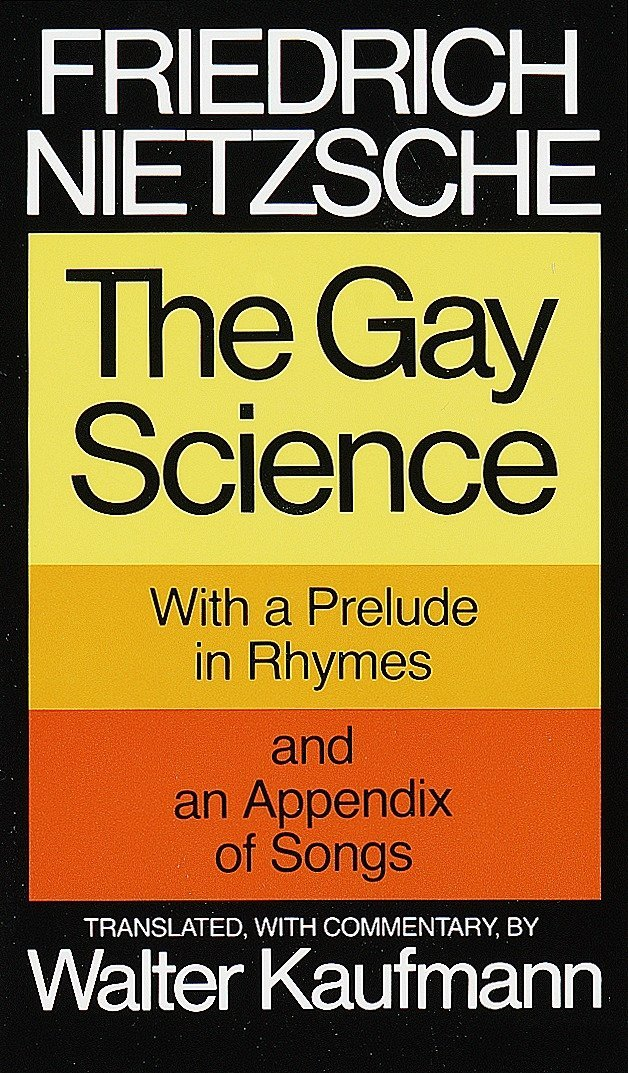The Gay Science Preface to the Second Edition
Author: Friedrich Nietzsche, Walter Kaufmann Publisher: New York, NY: Vintage Books. Publish Date: 1887 Review Date: Status:💥
Annotations
46
You see that I do not want to take leave ungratefully from that time of severe sickness whose profits I have not yet exhausted even today. I am very conscious of the advantages that my fickle health gives me over all robust squares.3 A philosopher who has traversed many kinds of health, and keeps traversing them, has passed through an equal number of philosophies; he simply cannot keep from transposing his states every time into the most spiritual form and distance: this art of transfiguration is philosophy. We philosophers are not free to divide body from soul as the people do; we are even less free to divide soul from spirit. We are not thinking frogs, nor objectifying and registering mechanisms with their innards removed: constantly, we have to give birth to our thoughts out of our pain and, like mothers, endow them with all we have of blood, heart, fire, pleasure, passion, agony, conscience, fate, and catastrophe. Life —that means for us constantly transforming all that we are into light and flame4 —also everything that wounds us; we simply can do no other. And as for sickness: are we not almost tempted to ask whether we could get along without it?5 Only great pain is the ultimate liberator of the spirit, being the teacher of the great suspicion that turns every U into an X, a real, genuine X, that is the letter before the penultimate one.6
47
Only great pain, the long, slow pain that takes its time—on which we are burned, as it were, with green wood—compels us philosophers to descend into our ultimate depths and to put aside all trust, everything good-natured, everything that would interpose a veil, that is mild, that is medium—things in which formerly we may have found our humanity. I doubt that such pain makes us “better”; but I know that it makes us more profound.
47
Whether we learn to pit our pride, our scorn, our will power against it, equaling the American Indian who, however tortured, repays his torturer with the malice of his tongue; or whether we withdraw from pain into that Oriental Nothing—called Nirvana—into mute, rigid, deaf resignation, self-forgetting, self-extinction: out of such long and dangerous exercises of self-mastery one emerges as a different person, with a few more question marks—above all with the will henceforth to question further, more deeply, severely, harshly, evilly and quietly than one had questioned heretofore. The trust in life is gone: life itself has become a problem. Yet one should not jump to the conclusion that this necessarily makes one gloomy. Even love of life is still possible, only one loves differently. It is the love for a woman that causes doubts in us.
47
The attraction of everything problematic, the delight in an x, however, is so great in such more spiritual, more spiritualized men that this delight flares up again and again like a bright blaze over all the distress of what is problematic, over all the danger of uncertainty, and even over the jealousy of the lover. We know a new happiness.
48
In the end, lest what is most important remain unsaid: from such abysses, from such severe sickness, also from the sickness of severe suspicion, one returns newborn, having shed one’s skin, more ticklish and malicious, with a more delicate taste for joy, with a tenderer tongue for all good things, with merrier senses, with a second dangerous innocence in joy, more childlike and yet a hundred times subtler than one has ever been before.
49
And as for our future, one will hardly find us again on the paths of those Egyptian youths who endanger temples by night, embrace statues, and want by all means to unveil, uncover, and put into a bright light whatever is kept concealed for good reasons.7 No, this bad taste, this will to truth, to “truth at any price,” this youthful madness in the love of truth, have lost their charm for us: for that we are too experienced, too serious, too merry, too burned, too profound. We no longer believe that truth remains truth when the veils are withdrawn; we have lived too much to believe this. Today we consider it a matter of decency not to wish to see everything naked, or to be present at everything, or to understand and “know” everything.
49
“Is it true that God is present everywhere?” a little girl asked her mother; “I think that’s indecent”—a hint for philosophers! One should have more respect for the bashfulness with which nature has hidden behind riddles and iridescent uncertainties. Perhaps truth is a woman who has reasons for not letting us see her reasons? Perhaps her name is—to speak Greek—Baubo?8
